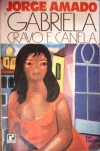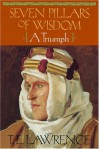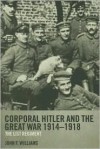Currently reading
THE PAPACY'S WAR AGAINST HITLER'S GERMANY

Prior to reading "CHURCH OF SPIES: The Pope's Secret War Against Hitler", the opinion I had formed of Pope Pius XII vis-a-vis the Nazis was that he was strongly pro-German (from the time he had served in Germany as Apostolic Nuncio during the 1920s) and was largely indifferent to the fate of the Jews during the Second World War. In spite of his intelligence and long experience in the hierarchy of the Catholic Church, Pius XII (he was Eugenio Pacelli prior to being named Pope in March 1939) had struck me as a 'cold fish.'
But after reading this book, I am beginning to realize that, perhaps, there was much more to Pius XII than met the eye. "CHURCH OF SPIES" lays out, in considerable detail, the history of the resistance movement against Hitler, which began before the war among a number of the German Catholic bishops and lay authorities (along with some members of the German military - e.g., the leadership of the Abwehr or military intelligence) and was given added (albeit indirect) impetus by Pius XII from the earliest days of his pontificate.
Besides Pope Pius XII, the book brings to the fore a number of courageous, resourceful and highly astute individuals from the ranks of the German Catholic hierarchy (as well as the Protestant theologian Dietrich Bonhoeffer) and Wehrmacht (German armed forces) who formed the bulwark of a true German anti-Nazi resistance. One of them who most stands out in my mind for his amazing bravery and uncompromising commitment to humane principles, is Josef Müller.
Müller, a First World War veteran and lawyer, had his first brush with the Nazis in 1934. He had been arrested by the Gestapo in February of that year and charged with "a treasonable conspiracy ... punishable by death." Facing his accusers, Müller asserted that there could be no compromise between the Church and the Reich because "each demanded 'the soul of the man.' " Heinrich Himmler, the head of the Schutzstaffel (later to be better known as the SS) was present at Müller's interrogation and asked him if it were true that Müller had suggested to his friend Heinrich Held (the prime minister of Bavaria, where Müller was active in the Bavarian People's Party) during the Nazi takeover of Bavaria that Himmler be shot. Müller said that was so, much to Himmler's surprise! Himmler hadn't seen that coming. He was very much taken aback by Müller's candor. He then offered him a place in the SS. Müller refused, stating that "I am philosophically opposed to you. I am a practicing Catholic, and my brother is a Catholic priest. Where could I find the possibility of compromise there?" Himmler was flummoxed and awed by Müller. He congratulated Müller on his "manly defense" and let him go.
Müller would later become a part of the resistance within Germany and serve as a go-between to Pius XII.
This book, which often read like an espionage thriller, gave me so much to think about concerning the anti-Hitler resistance that, hitherto, I couldn't have imagined existed in Germany to the extent that it did. After all, once Hitler assumed full control of Germany following the death of President Paul von Hindenburg in August 1934, I had long thought after having previously read in years past many other books about the Third Reich, that the Nazis had established a binding, absolute hold over the country. Well, that hold wasn't airtight.
And now that I've read "CHURCH OF SPIES", I would like to know more about the role of Pius XII and the Church in fighting Nazism during the Second World War. My curiosity has been piqued. [As an aside, I am still troubled by the fact that a number of Catholic priests after the War helped Nazi war criminals escape justice in Europe and find sanctuary in South America. Did Pius XII know about or condone their activities? I would like to know the answer to that question. ]
I can't rate this book with 5 stars, however, because the author neglected to include any photos of the principal members of the anti-Hitler resistance. (I would've loved to have been able to place faces with the names of all the resisters that Mark Riebling mentioned throughout the book.) For that reason, I can only rate "CHURCH OF SPIES" with 4 stars.
 1
1













